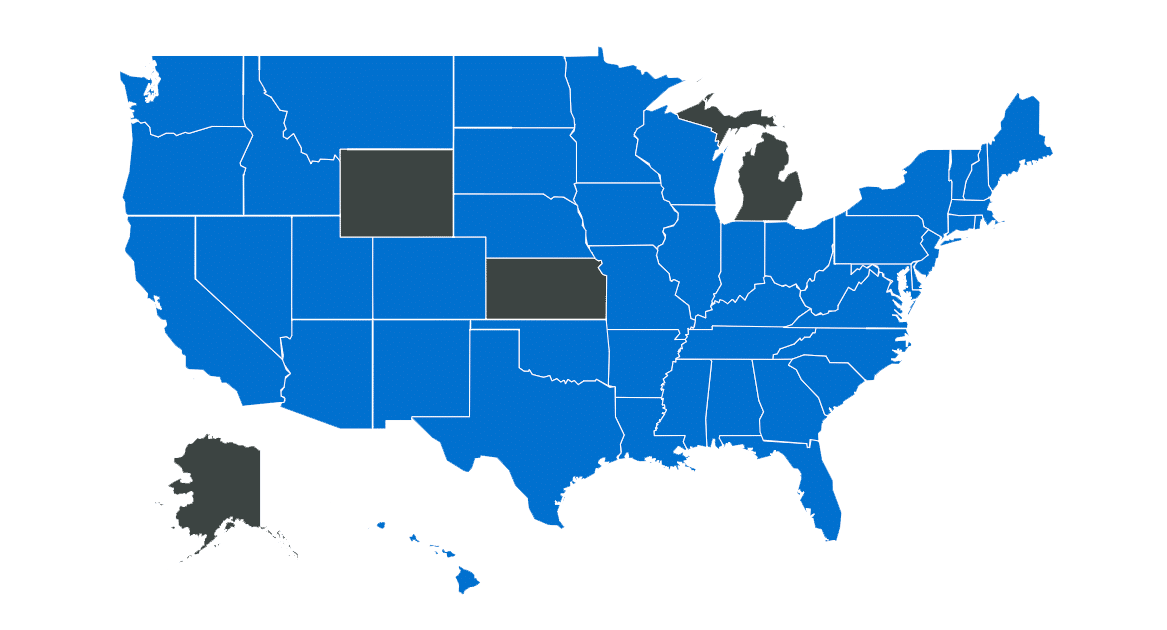February 27, 2024 5 min read

Policing Trends: New Use of Force and De-Escalation Training Mandates for Law Enforcement
Industry:
Solution:

As the future of policing continues to be discussed across the country, state legislatures are passing laws in a variety of areas that shape what that future looks like. Topics include oversight and transparency, internal investigations, the use of force, and training.
Two particular areas of focus have been the use of force and de-escalation training. Since 2020, at least 12 states have passed legislation related to de-escalation training: Colorado, Florida, Illinois, Indiana, Iowa, Massachusetts, Nebraska, Oklahoma, Tennessee, Utah, and Virginia. This is in addition to states that already required de-escalation training for law enforcement officers prior to 2020.
On the other hand, legislation changing or limiting the force used by law enforcement, which sometimes includes a mandate requiring training, is one of, if not the most significant area of legislative focus of the past few years. A majority of states have passed use of force legislation since 2020.
Below, we will discuss several recent examples of these legislative efforts and what might be on the horizon in 2024 and beyond.
De-Escalation Training as of 2024
As part of recent calls for police reform, law enforcement agencies have been mandated to implement training and policies intended to improve relations between police and members of their communities. Changing what sort of force officers are allowed to use and requiring de-escalation training are two such strategies.
While the usage of de-escalation techniques is not new, implementation of policies requiring training on their use has accelerated in the last handful of years.
When states mandate training on a specific topic, they may do so by:
- Requiring it to be part of annual in-service training
- Requiring it be added to academy curriculum
- Creating councils or work groups to create or establish training requirements for law enforcement within the state
- Or other approaches that may be a combination of the above or other unrelated strategies
This is also the case when it comes to de-escalation training.
In Florida, lawmakers passed H.B. 7051. Along with establishing standards associated with uses of force, it also mandated the instruction on alternatives to the use of force, including de-escalation training, be required to obtain initial certification as a police officer within the state.
Illinois’ legislation is similar to Florida’s. H.B. 3653 requires that probationary officers be instructed on the use of de-escalation techniques.
Indiana’s legislation requires de-escalation training be provided as part of pre-basic training, but also requires it to be included during in-service training and the executive training program. Similarly, Nebraska lawmakers mandated de-escalation training be included during both initial and in-service training. In Virginia, de-escalation training must be part of “basic training and recertification” for law enforcement officers.
Iowa, Massachusetts, and Utah all took similar approaches by requiring de-escalation training be part of annual training.
In contrast, several states took a more unique approach to de-escalation training. Colorado’s S.B. 22-145, provides grant funding to enhance curriculum related to de-escalation training. Oklahoma’s legislation specifically focuses on de-escalating interactions between security guards, private investigators, and the public. Finally, Tennessee lawmakers mandated that every law enforcement agency develop a policy regarding de-escalation by Jan. 1, 2022, and provide training on de-escalation techniques.
At the federal level, Congress passed the Law Enforcement De-Escalation Training Act of 2022. The act requires the Department of Justice (DOJ) to develop training curriculums on topics including alternatives to the use of force, de-escalation, and responding to a person in crisis. It also requires the DOJ make funding available to states and law enforcement agencies that wish to utilize this training curriculum once available, as well as other related training programs.
Use of Force Best Practices are Evolving
While most bills regulating use of force by officers have focused on requiring policy changes at local agencies or setting state-wide use-of-force standards, some have included provisions requiring training.
Policy changes typically require training updates to ensure officers are instructed with current best practices. In some states, this has meant training updates in back-to-back years to keep up with evolving legislative requirements.
In 2023 alone, Hawaii (S.B. 372), New Mexico (S.B. 19), Oklahoma (H.B. 1456), South Dakota (H.B. 1071), Texas (S.B. 133) and Washington (S.B. 5352) all passed legislation amending what constitutes lawful uses of force.
WANT TO LEARN MORE ABOUT LAW ENFORCEMENT LEGISLATION AROUND THE COUNTRY?
Visit our map of recently approved law enforcement legislation.
What Should Law Enforcement Agencies Expect Moving Forward?
As policing best practices continue to evolve, legislatures around the country are likely to pass new laws as a result. To keep up with these legislative efforts, law enforcement agencies must be ready to adapt to changing regulations regarding use of force and de-escalation.
While this change is happening quickly, today’s law enforcement agencies have access to technology to make delivering, tracking, and reporting on training faster and easier. The right training management system benefits the officers receiving that training, the supervisors
Vector Solutions’ suite of industry-leading software solutions for law enforcement includes training management systems, online training courses, FTO/PTO/CTO/live skill evaluations, academy automation, and an early intervention and conduct management system.
To learn more about how Vector Solutions can help your agency stay in compliance with legislative mandates, please request a demo today.










